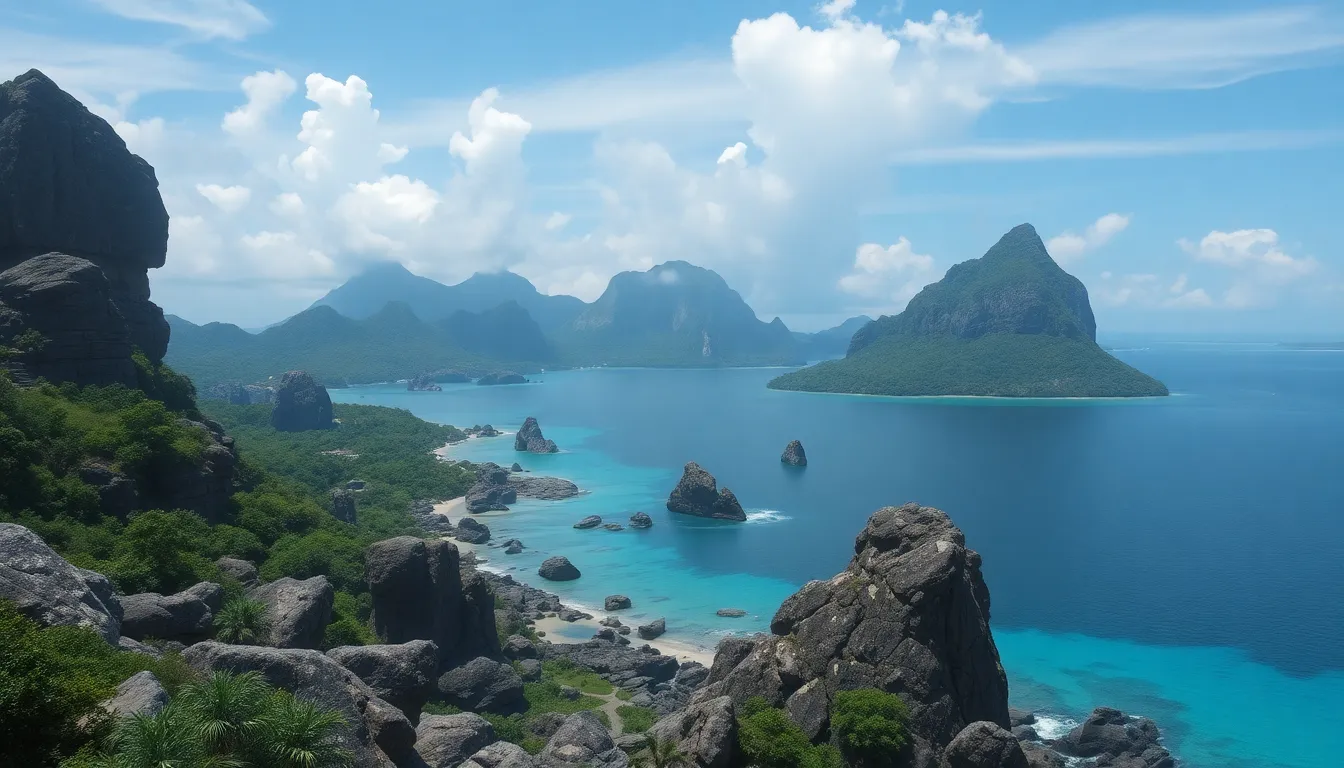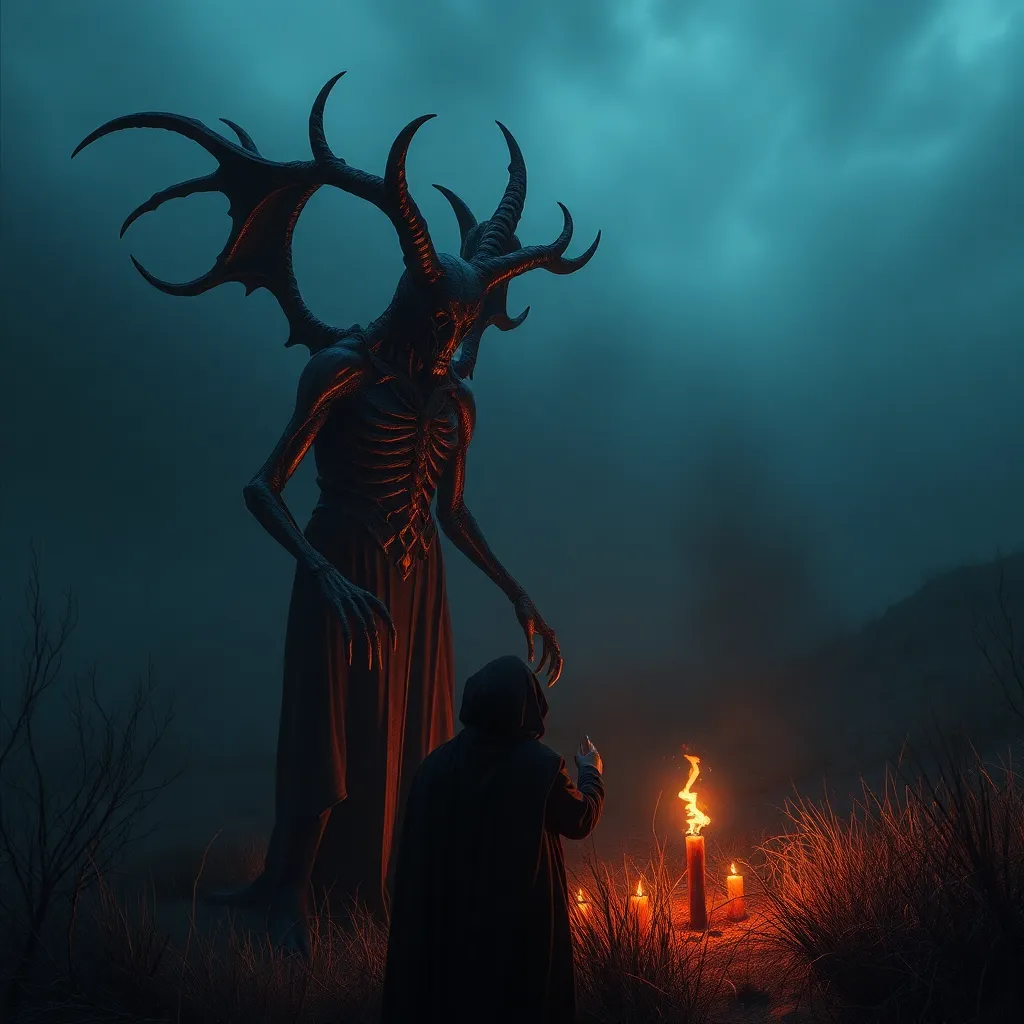The Mysterious Island of Lemuria: Lost Continent Myths
Introduction to Lemuria: A Brief Overview
Lemuria is a mythical lost continent that has captivated the imagination of researchers, writers, and explorers for centuries. Often associated with the idea of a once-thriving civilization now submerged beneath the waves, Lemuria is a prime example of the allure of lost continents in human history. Myths surrounding such places often reflect deeper cultural narratives about civilization, existence, and the unknown.
The Origins of the Lemuria Myth
The term “Lemuria” was first coined in the mid-19th century by the zoologist Philip Sclater, who hypothesized a land bridge that connected Madagascar to India to explain the distribution of certain lemur species. This theory gained traction, leading to the popularization of Lemuria as a lost continent.
Many 19th-century scientists and explorers contributed to the Lemuria myth, spurred on by the discoveries of new species and the emerging theories of evolution. The idea of a sunken land resonated with the Victorian fascination for exploration and the scientific inquiry of the time.
Geographical Theories: Where Was Lemuria?
Geographically, Lemuria has been speculated to exist in various locations, primarily in the Indian and Pacific Oceans. Some theories suggest:
- A landmass stretching from Madagascar to India.
- A submerged continent in the Pacific Ocean, potentially connecting various island chains.
- Connections to the lost continent of Atlantis, merging the two myths.
Geological evidence, particularly the theory of continental drift proposed by Alfred Wegener in the early 20th century, has led to debates about the existence of such landmasses. Although no definitive evidence supports Lemuria’s existence, the discussions around it have contributed to the understanding of plate tectonics and geological formations.
Cultural Significance of Lemuria in Ancient Civilizations
In various ancient cultures, references to Lemuria or similar lost lands can be found:
- In Hindu mythology, the concept of a lost continent aligns with the idea of ‘Kumari Kandam,’ a sunken land said to be the original home of the Tamil people.
- Buddhist texts sometimes reference a land known as ‘Zambudvipa,’ suggesting connections to the concept of lost civilizations.
- The stories of lost cities and civilizations, such as Atlantis, often run parallel to those of Lemuria, reflecting a universal fascination with lost knowledge and cultures.
Lemuria and the Evolution of Life: Scientific Perspectives
The idea of Lemuria played a significant role in the development of evolutionary theory. Some biogeographers, such as Ernst Haeckel, proposed that Lemuria was a cradle of biodiversity, where species evolved before dispersing to other regions. This notion was used to explain the peculiar distribution of flora and fauna across continents.
However, the scientific community remains divided on the existence of Lemuria. While some early scientists supported the idea, many modern geologists and biologists criticize the lack of empirical evidence. The consensus today leans towards explaining species distribution through mechanisms like continental drift and vicariance instead of a sunken continent.
Modern Interpretations of Lemuria
Theosophy, a spiritual movement founded in the late 19th century, significantly influenced modern interpretations of Lemuria. Theosophists like Helena Blavatsky claimed that Lemuria was a center of spiritual evolution and that its inhabitants were advanced beings who had a profound understanding of the universe.
This narrative has permeated modern spirituality, where Lemuria is often viewed as a utopian society that embodied harmony and balance. Many New Age beliefs incorporate Lemuria as a symbol of lost wisdom and a call to reconnect with ancient knowledge.
Literature and Lemuria: The Lost Continent in Fiction
Lemuria has also found a prominent place in literature, inspiring numerous works of fiction. Notable examples include:
- The Lost World by Arthur Conan Doyle: This novel features explorers seeking a prehistoric land filled with ancient creatures, reflecting the fascination with undiscovered realms.
- At the Mountains of Madness by H.P. Lovecraft: Lovecraft’s writing often invokes themes of ancient civilizations and forgotten knowledge, echoing the Lemurian mythos.
- The Secret of the Golden Flower: This text incorporates elements of Eastern mysticism, tying into the spiritual interpretations of Lemuria.
These narratives not only entertain but also shape public perception of Lemuria, reinforcing its status as a symbol of mystery and exploration.
Investigating Lemuria: Expeditions and Searches
Throughout the 20th century, various expeditions aimed to uncover evidence of Lemuria. Notable searches include:
- In the early 1900s, expeditions to the Indian Ocean sought to find remnants of Lemuria, fueled by the scientific curiosity of the time.
- In the mid-20th century, underwater explorations in the Pacific aimed to locate submerged landmasses that might correspond to the Lemurian myth.
Despite extensive searches, no conclusive evidence has emerged. The legacy of these expeditions, however, continues to fuel the imagination of those intrigued by lost civilizations.
Lemuria in Popular Culture
The influence of Lemuria extends into popular culture, with portrayals in movies, video games, and other media. Examples include:
- Films like Journey to the Center of the Earth and various adaptations of Jules Verne’s works often reference lost civilizations akin to Lemuria.
- Video games such as Final Fantasy and The Legend of Zelda series frequently incorporate themes of ancient lands and civilizations, drawing inspiration from the Lemurian myth.
This widespread representation in pop culture ensures that the myth of Lemuria persists, continually evolving and adapting to contemporary narratives.
Conclusion: The Legacy of Lemuria and Its Enduring Mystique
The myth of Lemuria continues to captivate imaginations around the world. It serves as a testament to humanity’s enduring curiosity about lost civilizations and the mysteries of our planet. The fascination with Lemuria reflects broader themes of exploration, discovery, and the quest for knowledge.
Lost continent myths, like Lemuria, invite us to ponder our place in history and the stories we tell about our past. They encourage exploration, both of the physical world and the realms of imagination, reminding us that the pursuit of knowledge is as important as the discoveries themselves.



